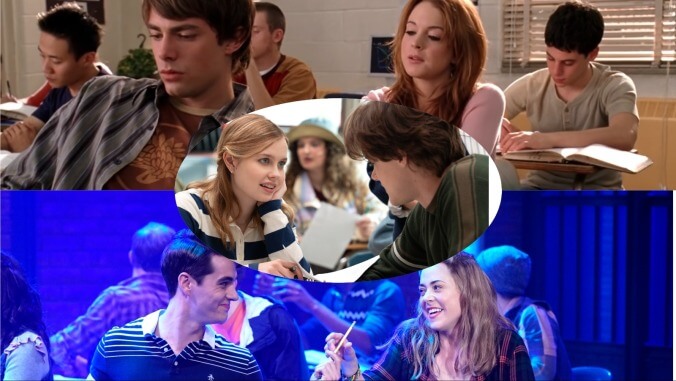Will Mean Girls kick off a new era for the 'movie to musical to movie musical' pipeline?
From screen to stage to screen again, IP like Mean Girls and The Color Purple give Hollywood studios and Broadway producers momentum in their quest for cash

Mean Girls, the movie-musical adaption that opens in theaters this weekend, feels like both an inevitable release and a bizarre confluence of trends that began long before its young cast was even born. We know that Hollywood will take any opportunity to expand an existing piece of intellectual property in a bid to make more cash; they kind of tried this already with Mean Girls’ ill-advised straight-to-ABC Family sequel in 2011. The decision to revisit the property as a straight remake but with songs is something that has only happened a handful of times. But given how recently the same thing happened with The Color Purple, we could be entering a new era of the movie to musical to movie musical pipeline. This phase is based, above all else, on the recognition of an old piece of film, but with some songs thrown in to justify its existence.
The story of how we ended up with movie-to-musical-to-movie musical adaptions of both The Color Purple and Mean Girls playing simultaneously in theaters across the country starts in 2001 with The Producers. Based on the 1968 Mel Brooks film, The Producers became the biggest hit of the 2001 Broadway season, won a record-breaking 12 Tony Awards, and made a ton of money. And even though it was a film first, when a Broadway musical is that successful, a film adaptation is all but guaranteed.
Even before The Producers, most Broadway musicals were based on something. Historically, it was common to adapt operas (Rent, Miss Saigon) biographies (Evita, Hamilton), and Shakespearean texts (Kiss Me Kate, West Side Story). There were plenty of musicals in Broadway’s Golden Age based on films, too; Nine and Sweet Charity are both based on Fellini films, and Sondheim’s A Little Night Music was based on an Ingmar Bergman film. (All three of these were later adapted back into movie musicals, too.)
Broadway figured out how to cash in on the Intellectual Property boom long before Hollywood did. In the 1990s, Disney adapted Beauty And The Beast and The Lion King into stage shows. Those were already movie musicals, so the transition was pretty natural, and The Producers was a Broadway-centric plot with a couple of existing songs, so that transition made sense too. The latter’s success, however, spawned an avalanche of successful, mainstream American films being turned into stage musicals, including Hairspray, Young Frankenstein, Legally Blonde, The Color Purple, Bring It On, and Mean Girls. Hairspray was also adapted back into a movie musical (and it remains one of the best in the genre, regardless of source material).








































